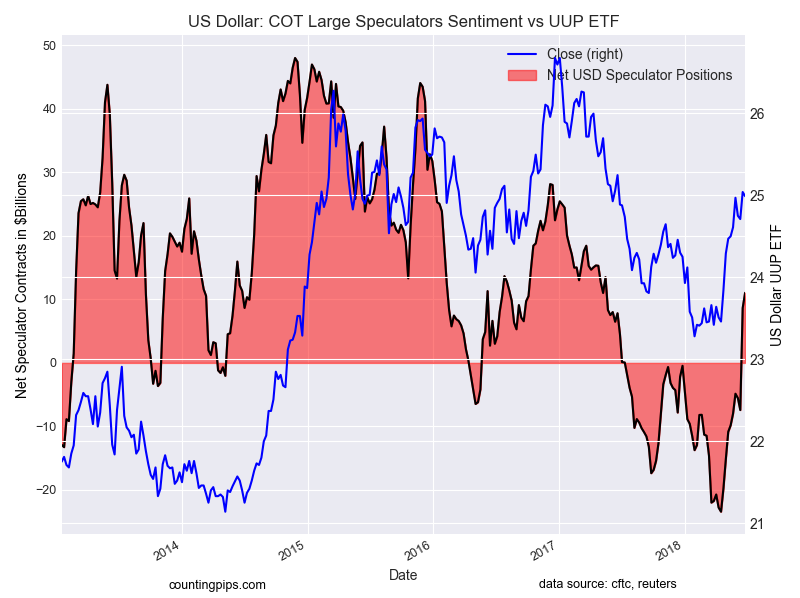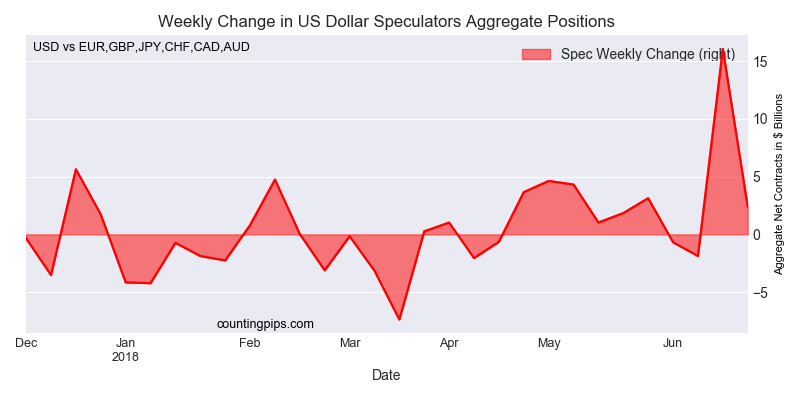US Dollar net speculator positions rose to $11.03 billion this week
The latest data for the weekly Commitment of Traders (COT) report, released by the Commodity Futures Trading Commission (CFTC) on Friday, showed that large traders and currency speculators raised their aggregate bullish bets for the US dollar this week.
Non-commercial large futures traders, including hedge funds and large speculators, had an overall US dollar net position totaling $11.03 billion as of Tuesday June 26th, according to the latest data from the CFTC and dollar amount calculations by Reuters. This was a weekly rise of $2.39 billion from the $8.64 billion total position that was registered the previous week, according to the Reuters calculation (totals of the US dollar contracts against the combined contracts of the euro, British pound, Japanese yen, Australian dollar, Canadian dollar and the Swiss franc).
The aggregate speculator position has now improved in favor of the US dollar for eight out of the past ten weeks and has landed the dollar position in bullish territory for a second straight week. The current bullish standing is at the highest level since May 16th of 2017 when the aggregate position totaled $13.5 billion.
Weekly Speculator Contract Changes:
This week we only saw one substantial change (+ or – 10,000 contracts) in the individual currency contract levels for the speculators category. Last week, we witnessed six such changes with gigantic moves favoring the dollar.
Canadian dollar contracts dropped by over -18,000 contracts this week and pushed the current position to the 14th straight week in bearish territory. Overall, the Loonie speculator sentiment is at the most bearish spot since July 3rd of 2017 when the net position totaled -39,372 contracts.
Overall, the major currencies that improved against the US dollar this week were the Japanese yen (1,341 weekly change in contracts) and the Australian dollar (2,121 contracts).
The currencies whose speculative bets declined this week versus the dollar were the euro (-2,214 weekly change in contracts), British pound sterling (-2,375 contracts), Swiss franc (-6,074 contracts), Canadian dollar (-18,785 contracts), New Zealand dollar (-1,622 contracts) and the Mexican peso (-1,245 contracts).
Table of Weekly Commercial Traders and Speculators Levels & Changes:
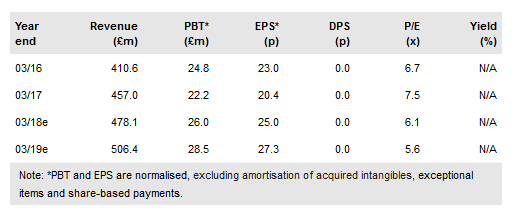
This latest COT data is through Tuesday and shows a quick view of how large speculators or non-commercials (for-profit traders) as well as the commercial traders (hedgers & traders for business purposes) were positioned in the futures markets. All currency positions are in direct relation to the US dollar where, for example, a bet for the euro is a bet that the euro will rise versus the dollar while a bet against the euro will be a bet that the dollar will gain versus the euro.
Weekly Charts: Large Trader Weekly Positions vs Price
Euro FX:
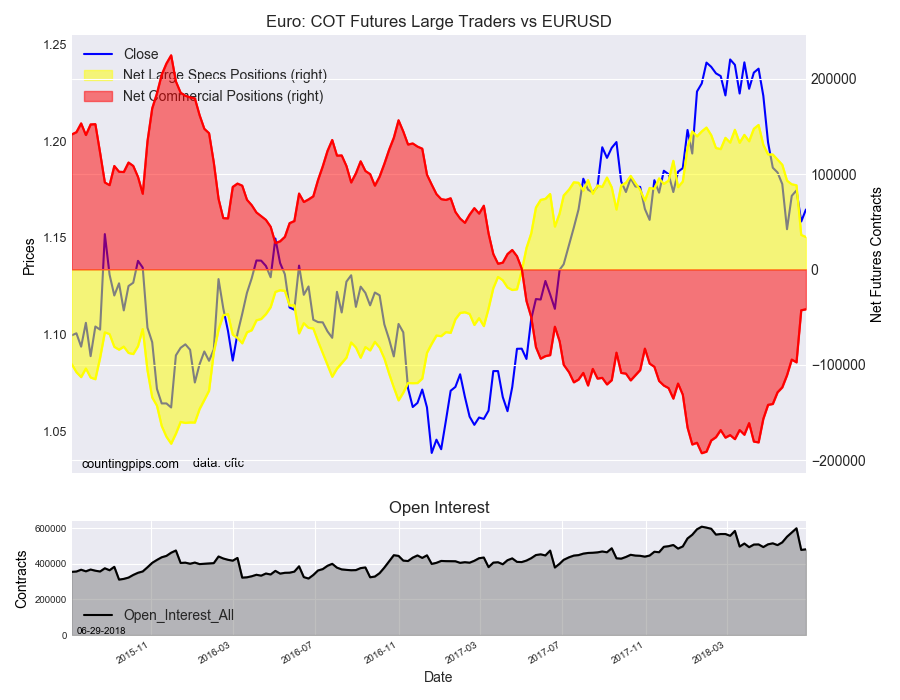
British Pound Sterling:
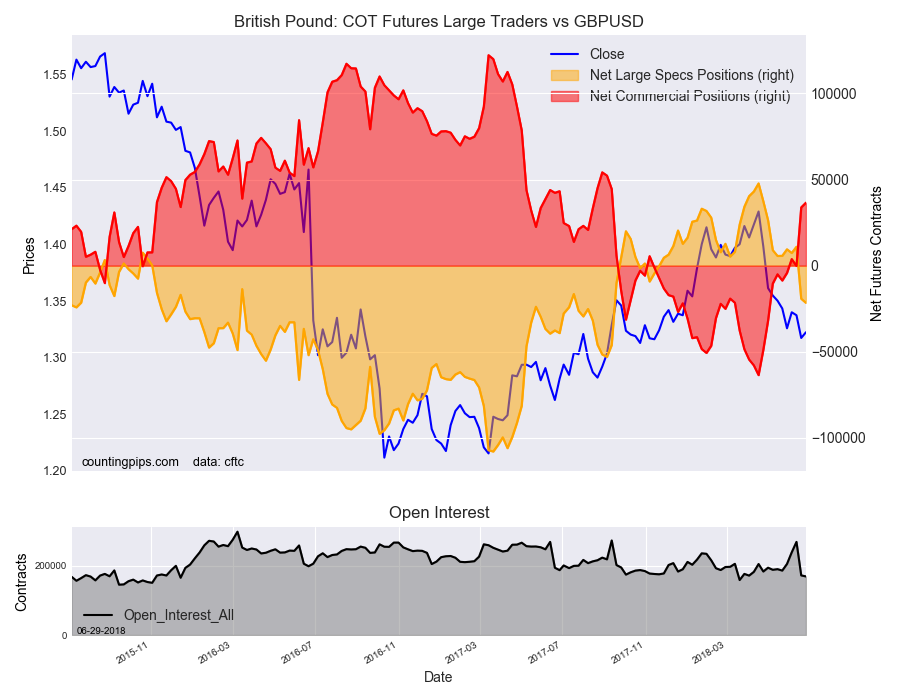
Japanese Yen:
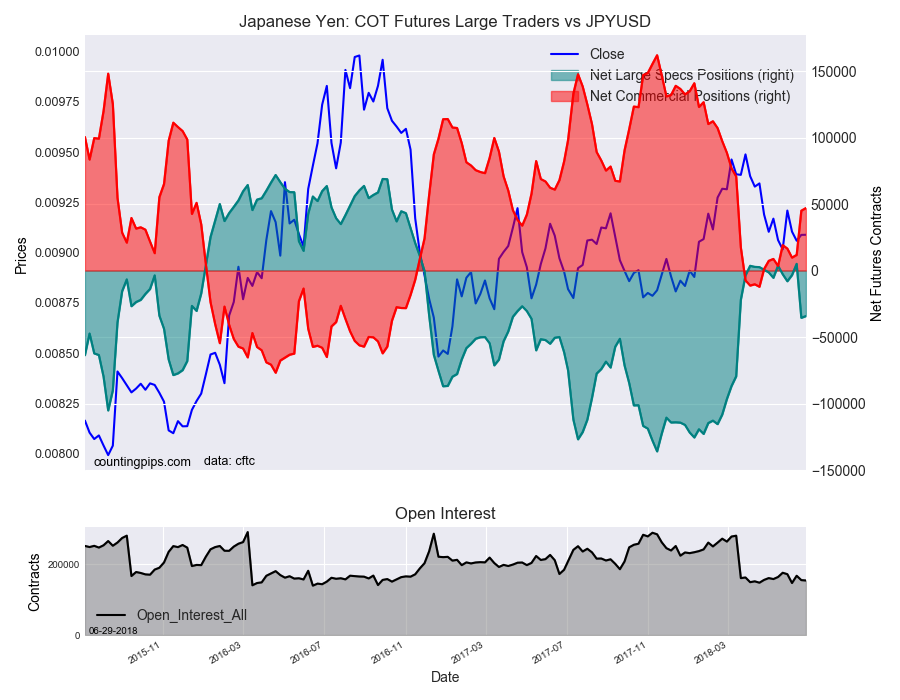
Swiss Franc:
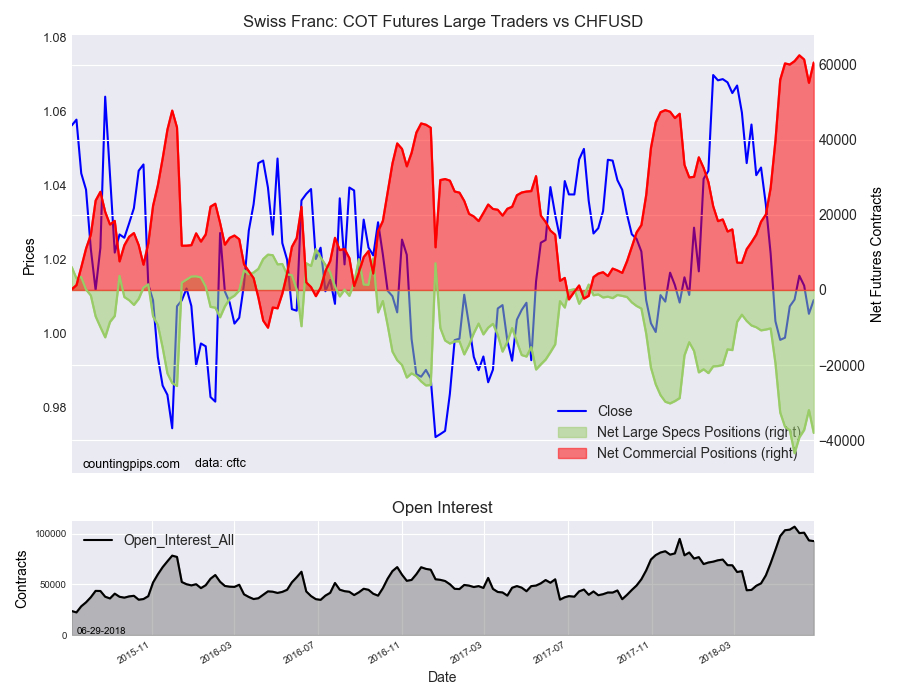
Canadian Dollar:
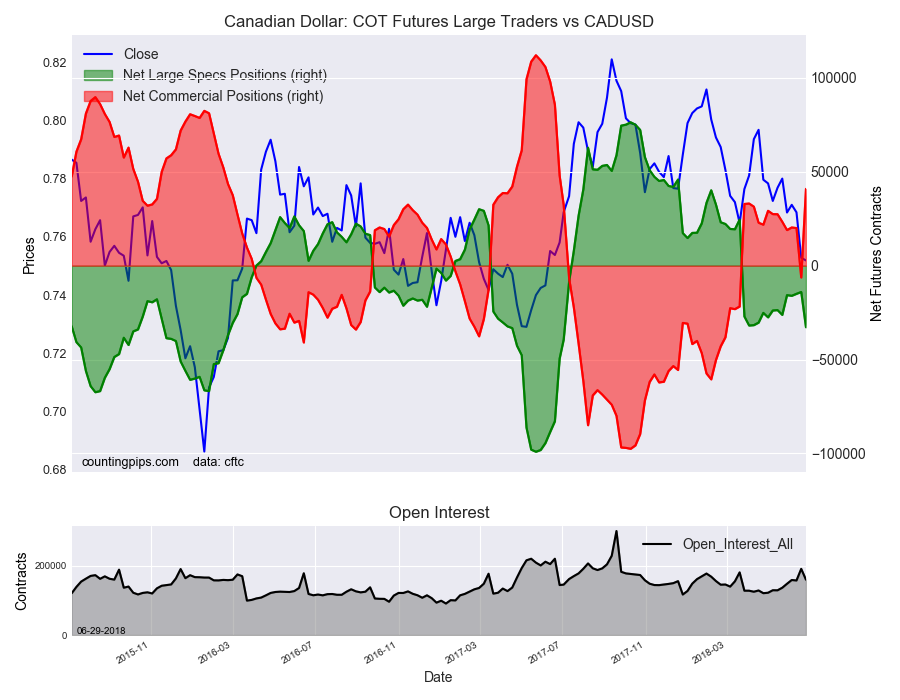
Australian Dollar:
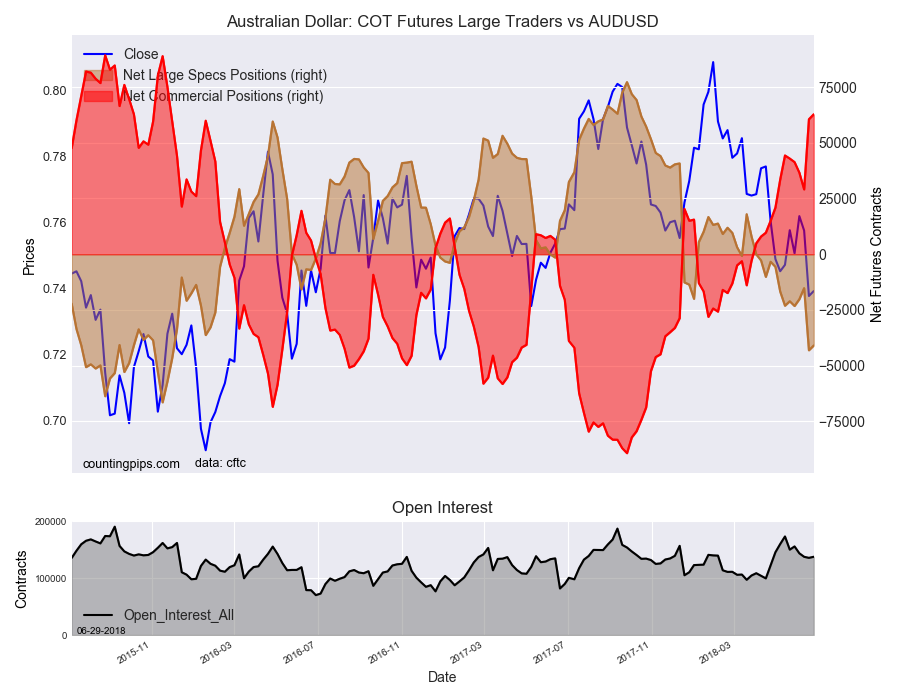
New Zealand Dollar:
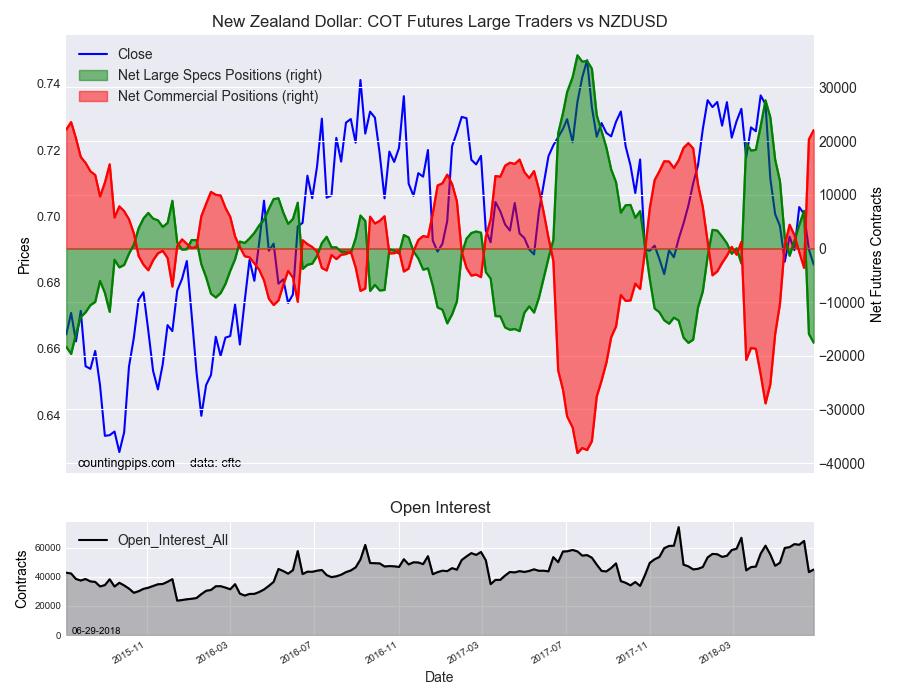
Mexican Peso:
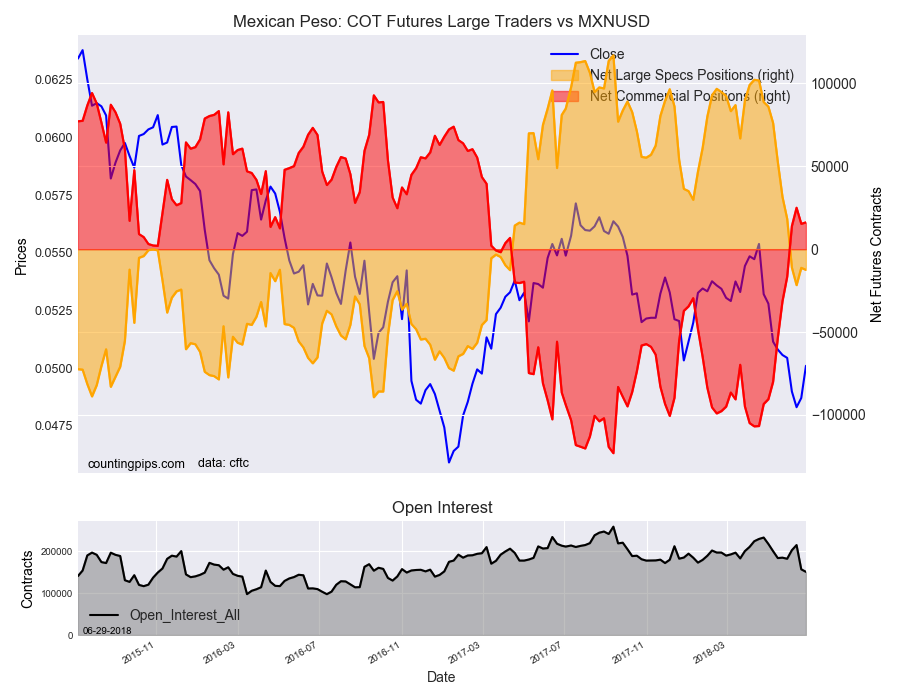
*COT Report: The weekly commitment of traders report summarizes the total trader positions for open contracts in the futures trading markets. The CFTC categorizes trader positions according to commercial hedgers (traders who use futures contracts for hedging as part of the business), non-commercials (large traders who speculate to realize trading profits) and nonreportable traders (usually small traders/speculators). Find CFTC criteria here: (http://www.cftc.gov/MarketReports/CommitmentsofTraders/ExplanatoryNotes/index.htm).
The Commitment of Traders report is published every Friday by the Commodity Futures Trading Commission (CFTC) and shows futures positions data that was reported as of the previous Tuesday (3 days behind).
Each currency contract is a quote for that currency directly against the U.S. dollar, a net short amount of contracts means that more speculators are betting that currency to fall against the dollar and a net long position expect that currency to rise versus the dollar.
(The charts overlay the forex closing price of each Tuesday when COT trader positions are reported for each corresponding spot currency pair.) See more information and explanation on the weekly COT report from the CFTC website.

